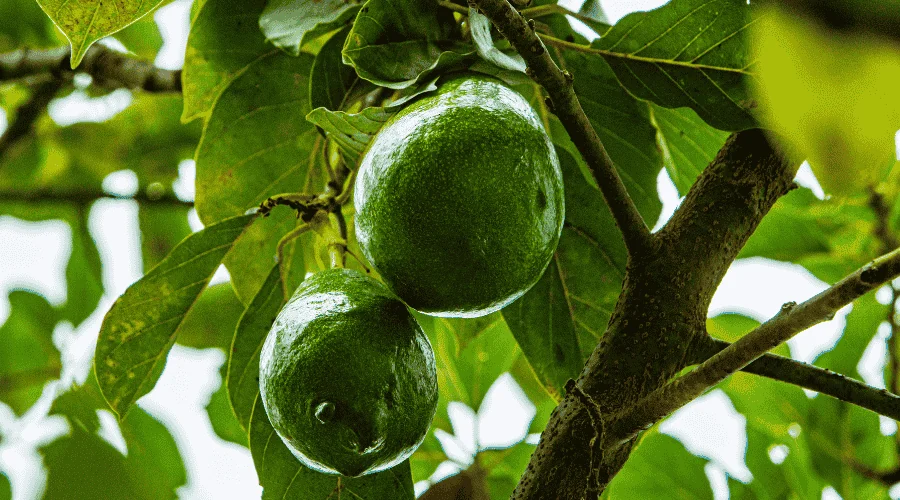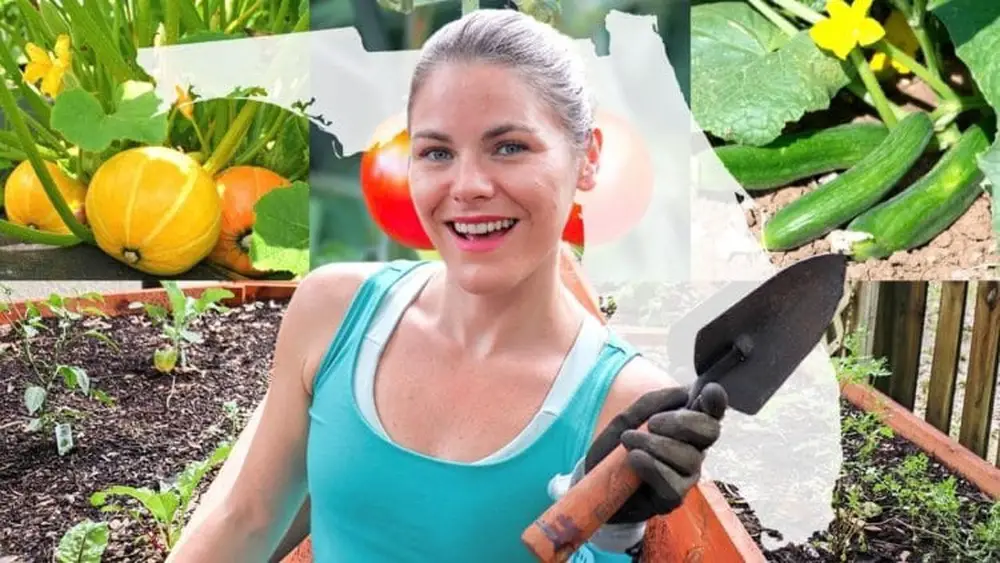Are you ready to transform your garden into a thriving source of fresh, delicious food? If you live in Central Florida, you have a unique climate that can help you grow a variety of amazing plants right in your backyard.
Choosing the best food plants for your area means you’ll enjoy healthier meals, save money, and experience the joy of homegrown produce. You’ll discover the top plants that flourish in Central Florida’s weather, so you can start planting with confidence and watch your garden flourish.
Keep reading to find out which plants are perfect for your soil and season!
Climate And Soil In Central Florida
Central Florida offers a unique environment for growing food plants. Its climate and soil shape what grows best here. Understanding these factors helps gardeners choose the right plants.
Weather Patterns
Central Florida has a warm, humid climate. Summers are hot and wet, while winters stay mild and dry. Rainfall mostly happens in the summer months. This pattern supports many tropical and subtropical plants. The area rarely faces frost, which helps extend the growing season. Sunlight is strong, promoting healthy plant growth.
Soil Types And Preparation
Soil in Central Florida ranges from sandy to loamy. Sandy soil drains quickly but holds fewer nutrients. Loamy soil is richer and better for most food plants. Adding organic matter improves soil quality and moisture retention. Testing soil pH helps adjust acidity for better plant health. Most plants thrive in slightly acidic to neutral soil here. Preparing soil well boosts plant success and yield.
Fruits That Flourish
Central Florida’s warm climate suits many fruit plants. These fruits grow well and produce tasty harvests. Home gardeners enjoy fresh, healthy fruit right outside their door. The soil and sun help these plants thrive.
Citrus Varieties
Citrus trees love Central Florida’s sunshine. Oranges, lemons, and grapefruits grow strong here. They need well-drained soil and regular watering. Citrus trees also bring a sweet, fresh smell to your garden. They start bearing fruit in a few years. Pick ripe fruit for the best flavor and juiciness.
Tropical Favorites
Tropical fruits do well in Central Florida’s warm weather. Pineapples, mangoes, and papayas grow with care. These plants need protection from cold snaps. They thrive in full sun and rich soil. Tropical fruits add unique flavors to your home garden. They make great snacks and fresh desserts.
Berries For Home Gardens
Berry plants suit Central Florida gardens nicely. Blueberries, strawberries, and blackberries grow with little fuss. They prefer acidic soil and plenty of sunlight. Regular watering helps berries produce more fruit. Fresh berries are perfect for snacks and jams. Growing berries offers a sweet reward for your effort.
Vegetables For Year-round Growth
Growing vegetables year-round in Central Florida is possible with the right choices. The region’s warm climate allows many plants to thrive across seasons. Selecting the best vegetables for each period helps ensure fresh produce all year long. Planning crops by season keeps your garden productive and healthy.
Warm-season Vegetables
These vegetables grow best in hot weather. Tomatoes, peppers, and eggplants do well in Central Florida’s long, warm summers. Okra and southern peas also thrive in heat. Plant these after the last frost date to avoid cold damage. Warm-season vegetables need plenty of sunlight and water.
Cool-season Crops
Cool-season crops grow during cooler months. Lettuce, spinach, and kale prefer mild temperatures. Broccoli and cabbage also flourish in fall and winter. These crops can handle light frosts. Plant cool-season vegetables in late fall or early winter for best results.
Root Vegetables
Root vegetables are easy to grow and store. Carrots, radishes, and beets do well in Central Florida soil. These crops can grow in both warm and cool seasons. Root vegetables need loose, well-drained soil for strong growth. They add variety and nutrition to any garden.

Credit: www.reddit.com
Herbs To Enhance Your Garden
Herbs bring life and flavor to any garden in Central Florida. They are easy to grow and useful in the kitchen. Many herbs thrive well in the warm climate and sandy soil. Growing herbs offers fresh ingredients close to home.
Choose herbs that suit your garden space and taste. Some herbs return year after year, while others grow for one season only. Both types add color, smell, and taste to meals.
Perennial Herbs
Perennial herbs live for several years. They grow back every spring without replanting. Rosemary is a popular perennial that loves sun and well-drained soil. It adds a pine-like flavor to meats and soups.
Thyme is another hardy perennial. It spreads slowly and fills garden corners with small leaves. Thyme works well in roasted dishes and teas.
Mint grows fast and spreads underground. Plant mint in a pot to control its growth. Mint freshens drinks and desserts.
Annual Herbs
Annual herbs complete their life cycle in one season. They grow fast and produce many leaves. Basil is the top annual herb for Central Florida gardens. It needs full sun and regular watering.
Cilantro grows quickly and prefers cooler months. Its fresh leaves brighten salsas and salads. Dill is good for pickles and fish dishes. These herbs add fresh flavor to summer meals.
Medicinal And Culinary Uses
Many herbs serve as both medicine and food. Lavender calms nerves and smells great in the garden. It can be used in teas or bath soaks.
Echinacea supports the immune system and grows well here. Use it in herbal remedies during cold season.
Parsley is rich in vitamins and easy to grow. It improves digestion and brightens many dishes.
Growing herbs provides fresh, natural ways to improve health and taste. Their uses go beyond cooking, adding wellness benefits to daily life.
Tips For Successful Planting
Growing food plants in Central Florida is rewarding but needs care. Good planting habits help plants grow strong and healthy. Follow simple tips to improve your garden’s success. Focus on watering, pest control, and feeding plants properly. These steps support healthy growth and better harvests.
Watering Strategies
Water plants deeply and less often. This encourages roots to grow down. Water early in the morning to reduce evaporation. Avoid watering leaves; wet leaves invite diseases. Use drip irrigation or soaker hoses for best results. Check soil moisture before watering again.
Pest Management
Check plants regularly for pests and damage signs. Remove insects by hand if you see them early. Use natural methods like neem oil or insecticidal soap. Encourage beneficial insects like ladybugs and spiders. Keep your garden clean from fallen leaves and debris. Crop rotation helps prevent pest buildup over time.
Fertilizing Techniques
Use balanced fertilizers suited for food plants. Apply fertilizer after planting and during growth stages. Follow label instructions to avoid overfeeding. Organic options like compost and manure work well. Fertilize in the morning or late afternoon for best absorption. Avoid fertilizing dry soil to prevent root burn.
Companion Planting Ideas
Companion planting is a smart way to grow food plants in Central Florida. It means planting different crops close to each other. This helps plants grow better and stay healthy. Some plants protect others from pests. Some improve the soil. Some help each other get more sunlight or water. Knowing which plants work well together can boost your garden’s success.
Beneficial Plant Pairings
Tomatoes grow well with basil. Basil helps keep bugs away. Beans add nitrogen to the soil. This helps corn grow stronger. Carrots and onions are good friends. Onions keep carrot flies off. Marigolds are great near many vegetables. They stop harmful insects from coming close. These pairs improve growth and protect plants naturally.
Avoiding Common Conflicts
Some plants do not grow well together. Avoid planting beans near onions. Onions can stop beans from growing. Potatoes and tomatoes should not be near each other. They share diseases that can spread fast. Corn and tomatoes also clash in the garden. Knowing these conflicts saves time and effort. Planting wisely keeps plants healthy and strong.
Sustainable Gardening Practices
Sustainable gardening helps grow food while protecting nature. It uses simple ways to save water, keep soil healthy, and avoid harmful chemicals. This makes gardens safe for people and animals. Sustainable gardens last longer and need less work. They also help the environment and reduce waste. In Central Florida, this approach suits the warm climate and local plants. You can grow strong, healthy food plants by following these green practices.
Organic Methods
Use natural fertilizers like compost or manure. These improve soil without chemicals. Avoid pesticides and herbicides that harm beneficial insects. Handpick pests or use natural predators instead. Plant flowers that attract bees and butterflies. Crop rotation helps stop diseases and pests. Organic methods keep the garden balanced and safe.
Water Conservation
Water plants early in the morning or late in the day. This reduces evaporation and saves water. Use drip irrigation or soaker hoses for direct watering. Mulch around plants to keep soil moist longer. Collect rainwater to use during dry spells. Choose drought-tolerant plants suited for Central Florida. These steps help gardens thrive with less water.
Soil Health Maintenance
Test soil regularly to check nutrients and pH levels. Add organic matter like compost to improve soil texture. Avoid over-tilling which can damage soil structure. Use cover crops to protect soil and add nutrients. Mulching also prevents erosion and keeps soil cool. Healthy soil grows strong plants and reduces the need for fertilizers.

Credit: cleancookingcaitlin.com

Credit: rockledgegardens.com
Frequently Asked Questions
What Are The Best Food Plants For Central Florida Gardens?
Best food plants for Central Florida include tomatoes, peppers, sweet potatoes, and okra. These plants thrive in warm, humid conditions and provide fresh produce year-round. Choosing local varieties ensures better growth and higher yields.
How Do I Grow Vegetables In Central Florida’s Climate?
Plant vegetables during the cooler months from October to March. Use well-draining soil and provide consistent watering. Mulch helps retain moisture and control weeds. Choosing heat-tolerant crops improves success in Central Florida’s hot, humid climate.
Which Fruits Grow Well In Central Florida?
Citrus fruits like oranges, grapefruits, and limes grow well here. Other suitable fruits include blueberries, strawberries, and figs. These plants prefer full sun and well-draining soil, making them ideal for Central Florida’s environment.
Can Herbs Thrive In Central Florida Gardens?
Yes, herbs like basil, oregano, rosemary, and thyme thrive in Central Florida. These herbs prefer sunny spots and well-drained soil. They grow quickly and add fresh flavors to meals, making them a great addition to any garden.
Conclusion
Growing food plants in Central Florida brings fresh taste and health. Choose plants that thrive in warm weather and sandy soil. Tomatoes, peppers, and herbs are great options. They need regular care but give tasty results. Small gardens or pots work well for homes.
Enjoy the process of planting and harvesting. Fresh food from your garden feels rewarding and fun. Start simple and learn as you go. Happy gardening!

